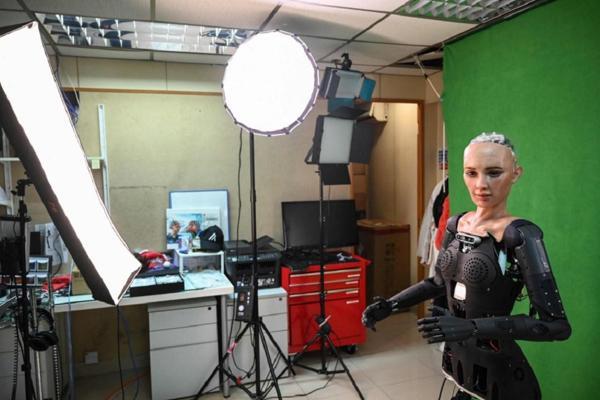Human extinction threat ‘overblown’ says AI sage Marcus
SAN FRANCISCO


Ever since the poem churning ChatGPT burst on the scene six months ago, expert Gary Marcus has voiced caution against artificial intelligence’s ultra-fast development and adoption.
But against AI’s apocalyptic doomsayers, the New York University emeritus professor told AFP that the technology’s existential threats may currently be “overblown.”
“I’m not personally that concerned about extinction risk, at least for now, because the scenarios are not that concrete,” said Marcus.
“A more general problem that I am worried about... is that we’re building AI systems that we don’t have very good control over and I think that poses a lot of risks, (but) maybe not literally existential.”
In March, alarmed that ChatGPT creator OpenAI was releasing its latest and more powerful AI model with Microsoft, Marcus signed an open letter with more than 1,000 people including Elon Musk calling for a global pause in AI development.
But last week he did not sign the more succinct statement by business leaders and specialists - including OpenAI boss Sam Altman - that caused a stir.
Global leaders should be working to reduce “the risk of extinction” from artificial intelligence technology, the signatories insisted.
The one-line statement said tackling the risks from AI should be “a global priority alongside other societal-scale risks such as pandemics and nuclear war”.
“If you really think there’s existential risk, why are you working on this at all? That’s a pretty fair question to ask,” Marcus said.
Instead of putting the focus on more far-fetched scenarios where no one survives, society should be putting attention on where real dangers lie, Marcus surmised.
“People might try to manipulate the markets by using AI to cause all kinds of mayhem and then we might, for example, blame the Russians and say, ‘look what they’ve done to our country’ when the Russians actually weren’t involved,” he continued.
“You (could) have this escalation that winds up in nuclear war or something like that. So I think there are scenarios where it was pretty serious. Extinction? I don’t know.”
There’s definitely a chance AI not yet invented can “help with science, with medicine, with elder care,” Marcus said.
“But in the short term, I feel like we’re just not ready. There’s going to be some harm along the way and we really need to up our game, we have to figure out serious regulation,” he said.
